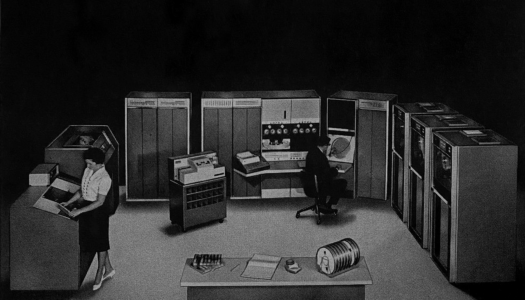Why Do So Many Reviews Read Like Opinions?
It’s become a recent trend in the age of Metacritic for gamers to question critics’ reviews. Why do so many reviews read like opinions, shouldn’t they be more objective? When critics give games a higher score than everyone else, were they paid off? When critics give games a lower score than everyone else, are they just trolling? And why do so many reviewers only use half of their review scale?
Why Do So Many Reviews Read Like Opinions?
In short: because they are opinions.
In his memoir Life Itself, famed critic Roger Ebert says: “How can a movie review be written in the third person, as if it were an account of facts? If it isn’t subjective, there’s something false about it.” Mind you, Ebert also believes games can never be art, but that’s only because he’s never played Journey.
The thing is, if you believe that videogame reviews should be completely objective and free of opinion, you are essentially agreeing with Ebert’s position. Art is by it’s nature subjective, and thus cannot be reviewed in an entirely objective manner. Or rather, it can, but the result isn’t very informative.
There are some aspects of videogames that are objective, of course. Whether or not the game functions and runs, for example. Whether it contains bugs or glitches, whether it’s possible to complete or not…basically, any criteria that relates to the game as a piece of software. But whether or not the game is enjoyable, and to what degree, cannot be measured in a universal way that applies to everyone. People who believe games can be measured in such a way are ignoring the fact that different gamers have different tastes.
Different Strokes
I remember back in high school, I used to believe that anyone whose musical tastes didn’t reflect my own was flat out wrong. Any relatively knowledgeable music lover could tell that Pink Floyd was the greatest band of all time, and Radiohead was the greatest current band. And anyone who couldn’t find at least one Beatles song they enjoyed needed their music listening license taken away.
But as I got older, I realized there is no right or wrong when it comes to music. How much a song resonates with someone depends on whether the mood or tone of the song is one that the listener can relate to. Different people have different tastes, and just because someone’s tastes differ from my own doesn’t mean they’re a bad person. Unless they listen to Nickelback.
And that’s the beauty of opinions. You can disagree with my opinions based on your own opinions, and neither one of us is wrong. It’s all subjective. The only things you can’t disagree with based on your opinions are facts, because facts aren’t subjective. Is it a fact that Quick Time Events are the worst gameplay mechanic ever invented, and should never be used in a game ever again? I wish it were, but it’s not. It’s just my opinion.
(The worst gameplay mechanic ever invented is actually grinding.)
The problem is that people look at individual critic scores on Metacritic and assume that the ones that are grouped most closely together are right, and any of the minority opinions are wrong. They start to believe that they should be able to read any review on any site and see the same score and observations. They don’t realize that they’re using reviews wrong.
Wait, How Can Anyone Use Reviews “Wrong”?
Like other gamers, critics have different tastes. When you read a review that doesn’t reflect your opinion of a game, you shouldn’t berate the reviewer into conforming to your tastes. Instead you should be looking for reviewers whose tastes reflect your own.
Think of a few games that you really enjoyed, and a few games you really hated. Then, search for a critic who felt the same way you did about those games. Finding your most compatible critics will give you a much better idea of whether or not you’ll like a game than Metacritic scores ever will. You’ll find yourself disappointed when one of your compatible critics moves on to doing something else. I’m still waiting for Adam Sessler to start writing reviews again.
And when looking for compatible critics, don’t just go by publication. Publications are made up of several reviewers, who all have different tastes. To give you an example, here at A Critical Hit!, James has much more patience for recreational frustration than I do. On the other hand, I tend to be much more critical of filler in games than most reviewers.
Should Critics Be Reviewing Games In Subgenres They Don’t Like?
I’m a fan of arcade-style racers and can’t stand sim racers. Let’s say I come across a review of a new Mario Kart game that criticizes the game for not being more like Grand Turismo. Shouldn’t I be mad?
I’d definitely disagree with their opinion, but I would ultimately consider their review helpful, in that I now realize the reviewer is not compatible with my tastes. Their review would also be helpful to sim racing fans in letting them know that they might not enjoy Mario Kart.
A movie review that criticizes X-Men: First Class for not being campy enough is bound to be helpful to some person, somewhere, as is a game review criticizing Halo 4 for not being enough like Call Of Duty. Are those critics missing the point? Absolutely. But there are going to be readers with similar tastes who find those reviews helpful, and other readers are going to know to forever ignore those critics’ reviews.
Honestly, the only thing that’s hurt by those reviews is the Metacritic score. And why should that matter to you, when you’ve got your compatible critics?

















November 12, 2012
At the end of the day all reviews of all things are opinion. The professional reviewer knows how not to tarnish his or her reputation.
The 10 point review scale is flawed most game scores hover between 7-10 which leaves 1-6 on the table almost all the time. I prefer a 5 point integer based review system as the 10 point scale only fuels as a means to capture reviewer bias. If a reviewer gives one game 10 out of 10 and another 9 out of 10 it’s likely some bias is at play there.
5 / 5 – Must buy even for people who not are fans of the series or genre. May have minor flaws that rarely if ever get in the way of the experience.
4 / 5 – Excellent game, may have minor flaws that hardly mar the experience. Fans of the series and genre should be happy.
3 / 5 – Good / average game with some flaws that can’t be ignored but aren’t a deal breaker. Fans of the series and genre should be satisfied.
2 / 5 – Sub-par game, may only satisfy fans of the series or genre.
1 / 5 – Terrible game, rental at best. Likely no one will like this game.
November 13, 2012
My personal opinion about any form of creative expression, be it music, a videogame, a painting, or a poem, is that it is the author’s responsibility to successfully communicate the idea to the participant. The “higher” or more abstract the idea, the more difficult the task becomes. But movies like Inception and Eternal Sunshine of the Spotless Mind are far more rewarding and deliver a much richer experience than a dummy popcorn movie… this is because they are successful in conveying complex, abstract and enjoyable stories to anyone who pays attention.
On the opposite end, a minimalistic, simple presentation of a unique idea can deliver the same, rewarding and enjoyable experience if the concept is communicated well. (The Red Balloon)
The same truth goes for my favorite videogames. True innovation can make simple ideas really fun. Large development teams can deliver massive and intricate stories and visuals that are also totally awesome.
In the end, I judge games by my personal preference, and whether or not the idea was successfully conveyed. If it was, I probably didn’t even notice how well it was executed because I was too busy having a good time without mechanic and design flaws distracting me.